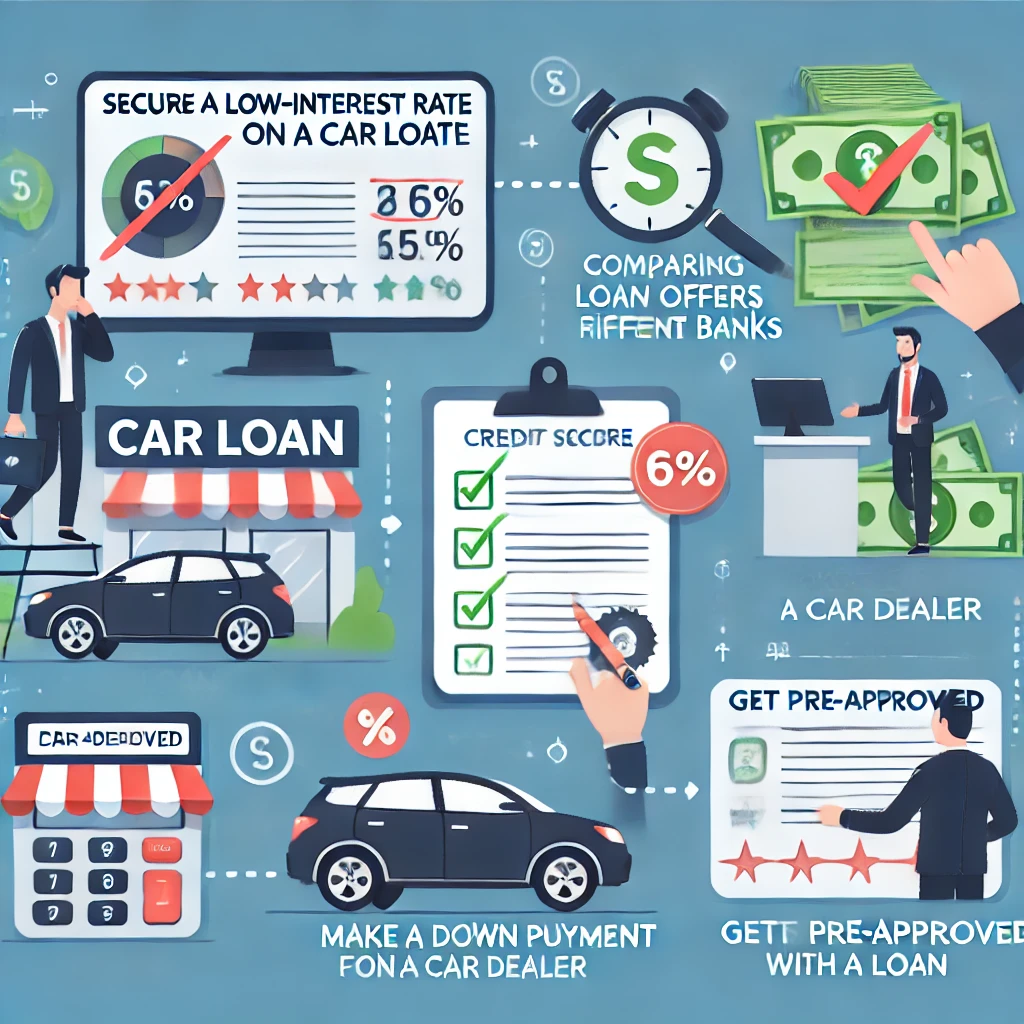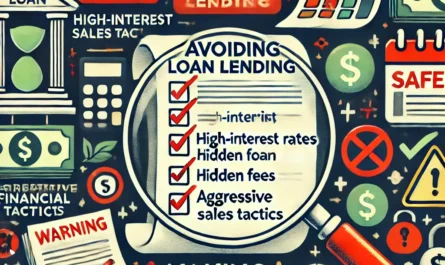Purchasing a car can be one of the most significant financial commitments you’ll make. If you’re like most buyers, securing a low-interest rate on your car loan is a top priority. After all, even a small difference in the rate can save you thousands of dollars over the life of the loan. But how exactly do you ensure you get the best deal? This guide will walk you through practical strategies that can help you land the lowest possible rate on your car loan, offering substantial savings over time.
Understanding Low-Interest Rates on Car Loans
Securing a low-interest rate can seem like a complicated process, but it boils down to understanding how loan rates work and the factors lenders consider when assigning them. Lenders determine your interest rate based on various factors such as your credit score, loan term, down payment, and the age of the vehicle. A good understanding of these factors helps you navigate negotiations more effectively, giving you the upper hand when applying for a loan.
Why a Low-Interest Rate Matters
A low-interest rate isn’t just a number—it’s the key to more affordable monthly payments and paying less over the life of your loan. For instance, even a 1% difference in the interest rate can mean significant savings, especially if you’re taking out a larger loan. Over time, this reduced cost will allow you to allocate more of your money toward other goals, such as investing or saving for emergencies. It also minimizes the risk of falling into debt if financial circumstances change.
How Credit Scores Affect Interest Rates
Your credit score plays a pivotal role in determining the interest rate you’ll qualify for. Lenders view your credit score as a measure of your reliability to repay the loan. A higher score often translates to a lower risk for lenders, allowing them to offer you better rates.
To qualify for the best possible rates, you’ll typically need a credit score of 700 or above. If your score falls below this threshold, don’t panic! There are steps you can take to improve your score before applying for a car loan, which we’ll explore in detail later.
Improving Your Credit Score Before Applying
If you’re aiming for a low-interest rate, improving your credit score should be at the top of your to-do list. Start by checking your credit report for errors, such as incorrect account balances or missed payments that you actually made on time.
Next, work on reducing your credit card debt. High credit utilization can negatively affect your score, so aim to keep your balances low—ideally under 30% of your available credit. Lastly, make sure to pay all your bills on time. Even one late payment can drastically reduce your score and, in turn, your chances of securing a favorable interest rate.
Shopping Around for Lenders
One of the most effective strategies for securing a low-interest rate is to shop around and compare offers from different lenders. Don’t settle for the first offer you receive—doing so could cost you thousands in additional interest payments. Banks, credit unions, and online lenders often have different criteria for their loans, so it pays to gather several quotes before making a decision.
Credit unions, in particular, often offer lower rates compared to traditional banks, especially for members with good standing. Additionally, some online lenders may provide more competitive rates due to lower overhead costs. Remember to use an online loan calculator to compare the long-term cost of each loan offer, not just the monthly payment.
Leverage Pre-Approval for Better Negotiation
Getting pre-approved for a car loan gives you more leverage when negotiating the final loan terms. With a pre-approval, you’ll know exactly how much financing you qualify for and at what rate. This information allows you to negotiate more effectively with dealers and avoid being swayed into unfavorable loan terms. Pre-approval also demonstrates to lenders that you’re a serious buyer, which could prompt them to offer better rates to secure your business.
How Loan Terms Impact Your Interest Rate
Loan terms can have a direct impact on the interest rate you’re offered. While longer loan terms—such as 60 or 72 months—might reduce your monthly payment, they typically come with higher interest rates. Shorter terms, on the other hand, often carry lower interest rates because lenders view them as less risky.
However, while a shorter term will save you money on interest, it also means higher monthly payments. Carefully consider how much you can afford monthly while weighing the benefits of a lower interest rate over the life of the loan.
The Role of Down Payments in Lowering Your Rate
Making a larger down payment can significantly reduce the interest rate on your car loan. A bigger down payment lowers the total amount you need to borrow, which reduces the lender’s risk. In return, lenders are often willing to offer more favorable rates. Aim to put down at least 20% of the vehicle’s price, if possible. Not only will this likely lower your interest rate, but it can also reduce your monthly payments, making the loan more manageable overall.
New vs. Used Cars: Which Offers Better Interest Rates?
Interest rates tend to vary depending on whether you’re buying a new or used car. Typically, loans for new cars come with lower interest rates because new vehicles are considered less risky by lenders. They are easier to resell and maintain value longer than used cars. However, new cars also come with a higher price tag, so while the interest rate might be lower, you may still end up paying more overall.
On the other hand, used car loans often come with higher interest rates due to the increased risk for lenders. But, because the loan amounts tend to be smaller, the total cost of the loan can still be lower than that of a new car loan. Weigh your options carefully and choose the one that best fits your financial situation.
The Importance of Timing Your Loan Application
Timing can play a crucial role in securing a low-interest rate. Interest rates fluctuate based on market conditions, such as the Federal Reserve’s policies or broader economic trends. It’s a good idea to keep an eye on the market and apply for a car loan when rates are lower. In addition, some car dealerships offer promotional financing at certain times of the year, such as at the end of a model year or during major sales events.
Applying for a loan during these periods can help you secure a better interest rate. Keep an eye on promotions and consider aligning your car purchase with these offers to maximize your savings.
You can also read : How to Choose the Right Personal Loan for Your Financial Needs
Negotiating with the Dealer for a Lower Rate
Car dealerships often have their own financing departments, but their first offer is rarely the best one. Don’t be afraid to negotiate with the dealer to secure a lower interest rate. Dealers may offer marked-up rates to increase their profit margin, but with a bit of persistence and leverage, you can often convince them to lower the rate.
To strengthen your position, show the dealer pre-approval offers from other lenders and be prepared to walk away if they can’t match or beat those offers. Dealers often want to close a sale, so presenting them with a competitive offer may prompt them to lower their rate to secure your business.




